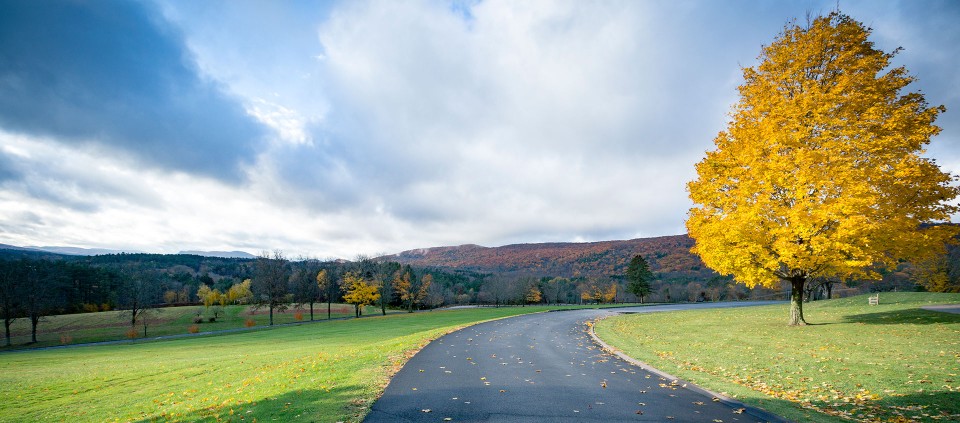What If You Asked a Different Question?

Questions are doorways.
Ask one question, such as, “How was your day?” and you’ll likely receive one of a set of typical answers: “Fine.” “It was okay, but …” “Same old, same old.” Together, we will have entered the universe of the ordinary, the predictable, maybe even the banal.
Ask a different question, a question that orients us toward the positive, such as, “What was the best moment of your day so far?” or “What went well today?” and we enter a livelier world—a world of novelty, of discovery, of color and texture and uplift. Suddenly we will hear something like the following: “My best moment? The hug this morning from my daughter!” or “I really stayed with something difficult in our staff meeting and it paid off.” We will hear wonder and exclamation and surprise, and we will witness another’s elevation. We will see it in their smiles and bright eyes, and we will feel the curiosity blossoming within them as they notice anew something both simple and profound: that any one day, such as an ordinary Tuesday, can become a day when best things happen.
Our questions determine not only the conversation we choose to have, but the world we choose to inhabit. We can continue in life, asking standard questions and receiving mundane responses, or we can craft a life based upon an inquiry that is inviting, expansive, and optimistic, rooted in holding up an appreciative lens. The questions we ask, the perspectives we hold, and the views that we choose to consider make a powerful difference in our experience of living. Ralph Waldo Emerson understood this. He wrote: “To different minds, the world is a hell, and a heaven.” John Milton, born two centuries earlier, too: “The mind it its own place and in itself, can make a heaven of hell and a hell of heaven.” We can experience the same living as either a torturous one or a beneficent one.
Joy in Unexpected Places
Years ago, this came home to me one day when I was on the subway in Manhattan, headed from one meeting to another, and the train stopped abruptly. The lights went out. We heard nothing from the conductor. We sat, locked in space and time, for 17 minutes. At that point, without explanation, the train began to move again, and we shortly found ourselves at the next station.
My colleague and I hung back to let others off first, and we noticed that, because we had all been through a bit of a strange thing together, we were all a bit kinder to each other. With a few people left in the car, we stood up to exit and noticed a small boy, about the age of eight, preparing to cross the threshold onto the platform. Just as he stepped across, he pivoted, turned to my colleague and me, looked us straight in the eyes, and stated, “Sometimes, it takes a while to find the joy.” He smiled, and then kept walking. A stranger. A young boy. A subway in New York. The simplest of days. And somehow, in that simple and unusual experience of being trapped and then freed, he found joy.
We can as well.
The Shape of Our Reality
Much of the time in life, we can choose to shape our perspective, to change the questions of the day, and in so doing, change the experience of our lives. Appreciative living isn’t just about asking a different question, it’s about coming to recognize that how we see matters, and that shaping that seeing will either bring us to a place of greater resilience and hope, and perhaps even happiness, or to its opposite. How many of us have worked with or spent time with people who cannot seem to drink in the good that is right in front of them, or conversely those who seem to find gold in almost every challenge, every stressor? How they see, what they choose to focus upon, determines the very quality of their existence.
I’m not suggesting that we ignore the difficult or deny our suffering. Nor ought we to let ourselves or others off the hook for unhealthy, immoral, or unethical behavior. Rather, that even in the most strained moments of life, we can hold a view that includes both the reality of our distress and the reality of the beneficence, beauty, or care that is present as well. We can honor the wholeness of reality. Helen Keller, bereft of sight and hearing from birth, found her way into a life of deep gratitude and celebration. Upon being asked about her ability to love her life anyway, she responded, “So much has been given me, I have no time to ponder over that which has been denied.”
Helen represents much of what the research in the field of positive psychology has uncovered: The most resilient of us and the happiest of us choose to consider life through the lens of appreciation and of optimism. We find benefit where we can, and divest from fault-finding. We let go of expectations of things being perfect and instead seek to savor the good within us and the good around us, even as we recognize and work to address our flaws. We actively invigorate ourselves with questions that are life-giving, such as How have I grown? What good might I create today? and What lifts me?, and quiet the questions that cause harm to ourselves or others. We cultivate the small seeds of possibility present to us each day to be better human beings for ourselves and for the sake of others, and we lean toward the positive. We understand that while much of life is difficult, pressing, and out of our control, we are in control of how we respond and how we view the world and each other.
Holding Life’s Dichotomies
As I write this, I am in a cabin in the Atlantic rainforest of Brazil, about two hours outside of Sao Paulo. Parakeets, luminescent butterflies, and monkeys carouse through the trees. Waterfalls sparkle in the springtime light and the air resonates with vibrant tones of blue. Much is politically untenable in the world right now, even with all its radiant beauty. Every group I teach, whether in London, Mexico City, Miami, or here, are burdened with worry for the state of their people and their countries. So much is unsolvable in the short term. And the very lands on which we walk are endangered.
Yet, to deny the good—in the kindness of strangers, in the fealty of those who care for us, the tenacious work and courageous voices present in the world—is to deny an equally potent reality. In fact, to have the grit and the creativity and the kinship necessary to heal the earth and each other, we must fuel ourselves with a view that can hold both the sorrow of a rainforest that is shrunken and scarred, and the wonder of a butterfly.
So much has truly been given to us.
It is up to us to see it, savor it, honor it, and elevate it by doing all we can to shift our own perspectives—to see and cultivate heaven wherever we can.
Maria Sirois, PsyD, is a positive psychologist and seminar leader who teaches with wisdom, authenticity, and humor at the intersection of resilience and flourishing.
Full Bio and Programs
